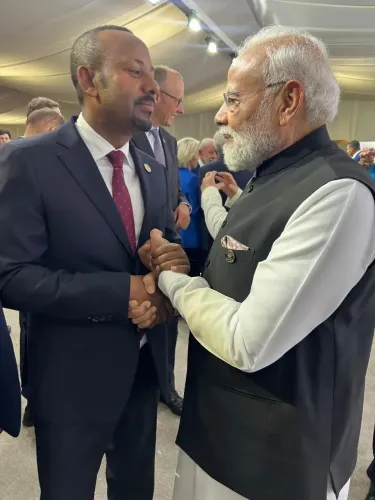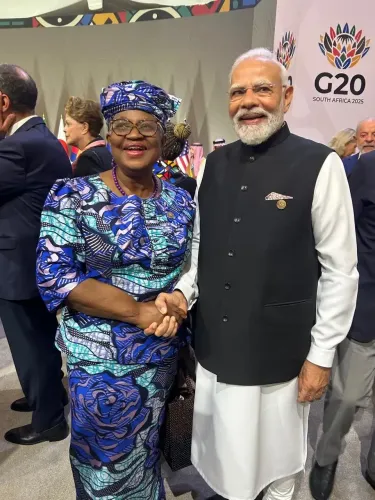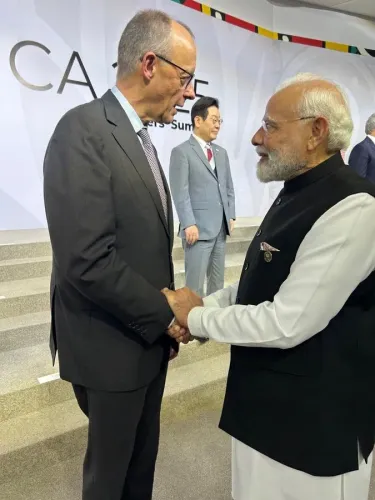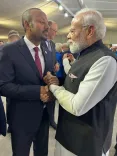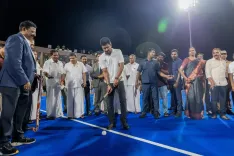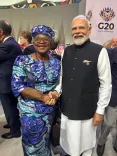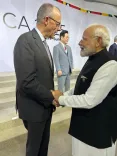Why is Pahalgam's Significance Highlighted by the SC on J&K Statehood Pleas?
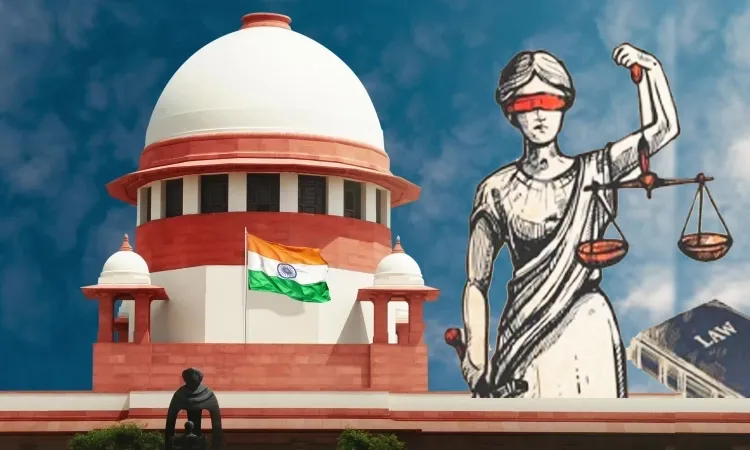
Synopsis
Key Takeaways
- The Supreme Court recognizes the importance of ground realities in J&K.
- Recent events in Pahalgam underscore the need for cautious legal proceedings.
- Restoration of statehood remains a pressing issue for J&K citizens.
- Legal assurances from the government are under scrutiny.
- Future hearings will be critical in determining J&K's political landscape.
New Delhi, Aug 14 (NationPress) The Supreme Court on Thursday exhibited caution regarding an expedited hearing on a series of petitions advocating for a timely restoration of Jammu and Kashmir’s (J&K) statehood.
A Bench led by Chief Justice of India B.R. Gavai and Justice K. Vinod Chandran emphasized the “ground realities” and referenced the recent terror incident in Pahalgam while agreeing to the Centre’s plea to postpone the hearing for eight weeks.
“Consideration of the ground realities is imperative. The events in Pahalgam cannot be overlooked,” directed the CJI Gavai-led Bench to the petitioners requesting an earlier hearing.
The apex court was reviewing applications that claimed the ongoing delay in restoring statehood is “seriously impacting the rights of the citizens of Jammu and Kashmir and undermining the principles of federalism.”
The petitions argued that the lack of a timely restoration of statehood constitutes a violation of federalism, part of the Basic Structure of the Constitution.
“It has been 21 months since the ruling on Article 370. There has been no progress toward reinstating statehood,” asserted senior advocate Gopal Sankaranarayanan, noting that the Constitution Bench had placed its trust in the Union government, following the Solicitor General's assurance that statehood would be re-established.
Solicitor General (SG) Tushar Mehta, while questioning the validity of the petitions, urged the apex court to recognize the “unique circumstances” in J&K and requested that the pleas be scheduled for hearing after eight weeks, stating this was not the appropriate phase to deliberate the matter.
“These petitions lack maintainability. We assured two things: elections would occur, followed by statehood. Your honors understand the unique situation emerging from this region of our nation. There are numerous factors to consider,” noted SG Mehta.
“I am uncertain why this issue is being raised at this moment, but I request a postponement of eight weeks. I will gather instructions. This particular stage is not suitable for complicating matters,” Mehta added.
After considering the arguments, the CJI Gavai-led Bench sought the Union government’s perspective on the issue and scheduled the case for hearing in eight weeks.
In the verdict concerning 're: Article 370 of the Constitution', a 5-judge Constitution Bench, led by former CJI D.Y. Chandrachud, left open the question of whether Parliament can alter the status of statehood by transforming a state into one or more Union Territories, hinging on a verbal assurance made on behalf of the Centre that statehood would be reinstated in J&K.
During the oral hearings, the Solicitor General, the second-highest law officer of the Centre, indicated that the Union Home Ministry cannot provide a specific timeline, indicating it would require “some time” for the reinstatement of statehood in J&K.

